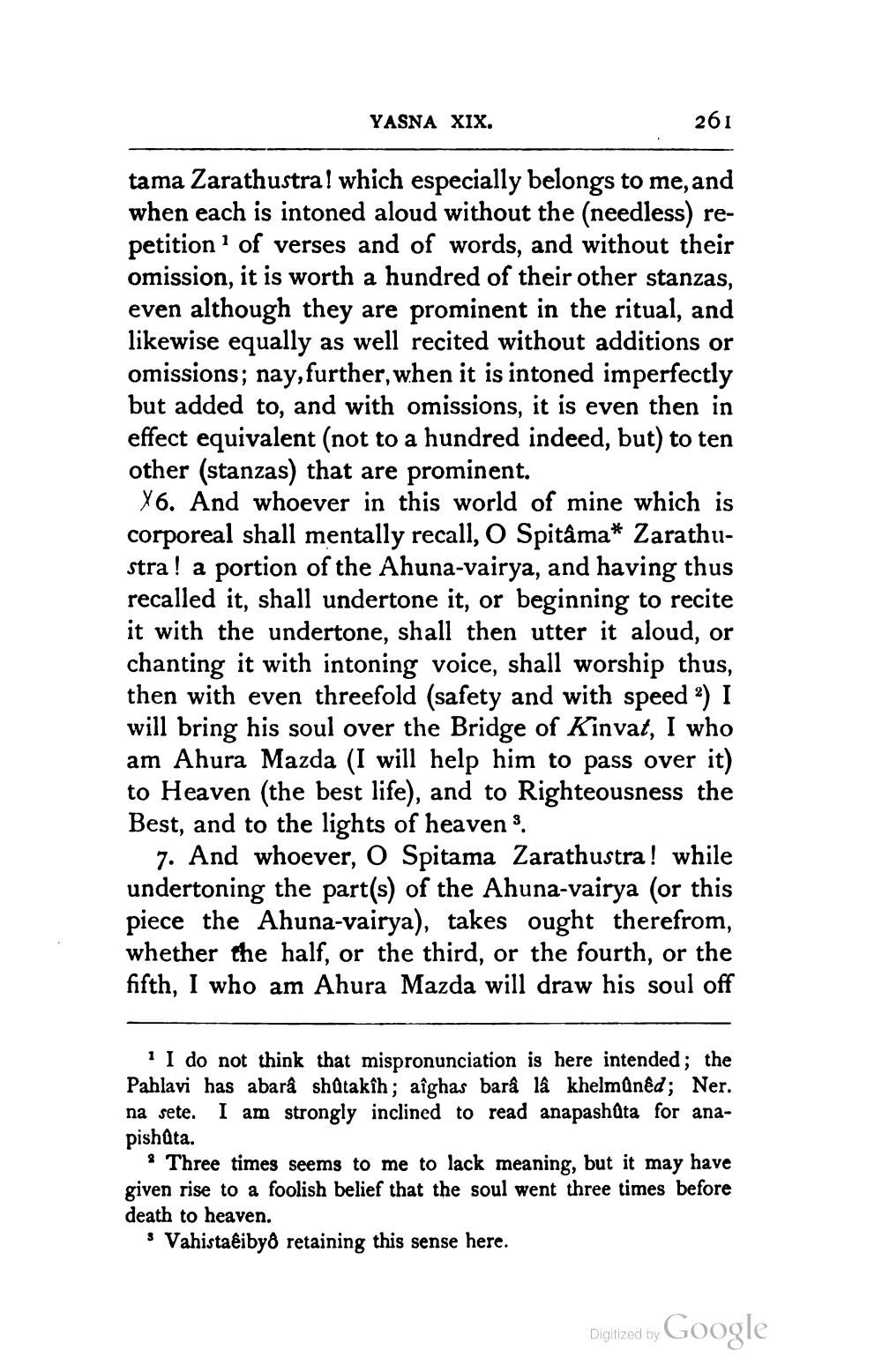________________
YASNA XIX.
261
tama Zarathustra! which especially belongs to me, and when each is intoned aloud without the (needless) repetition of verses and of words, and without their omission, it is worth a hundred of their other stanzas, even although they are prominent in the ritual, and likewise equally as well recited without additions or omissions; nay, further, when it is intoned imperfectly but added to, and with omissions, it is even then in effect equivalent (not to a hundred indeed, but) to ten other (stanzas) that are prominent.
Y6. And whoever in this world of mine which is corporeal shall mentally recall, O Spitâma* Zarathustra! a portion of the Ahuna-vairya, and having thus recalled it, shall undertone it, or beginning to recite it with the undertone, shall then utter it aloud, or chanting it with intoning voice, shall worship thus, then with even threefold (safety and with speed 2) I will bring his soul over the Bridge of Kinvat, I who am Ahura Mazda (I will help him to pass over it) to Heaven (the best life), and to Righteousness the Best, and to the lights of heaven S.
7. And whoever, O Spitama Zarathustra! while undertoning the part(s) of the Ahuna-vairya (or this piece the Ahuna-vairya), takes ought therefrom, whether the half, or the third, or the fourth, or the fifth, I who am Ahura Mazda will draw his soul off
1 I do not think that mispronunciation is here intended; the Pahlavi has abarâ shatakih; aîghas bará là khelmûned; Ner. na sete. I am strongly inclined to read anapashůta for anapishta.
9 Three times seems to me to lack meaning, but it may have given rise to a foolish belief that the soul went three times before death to heaven.
s Vahistaêibyo retaining this sense here.
Digitized by
Digitized by Google




